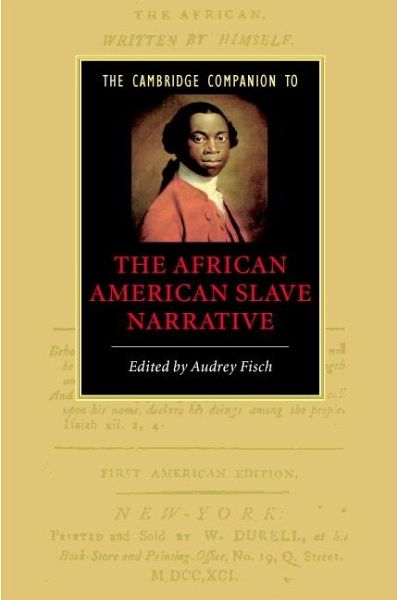
The Cambridge Companion to the African American Slave Narrative
Versandkostenfrei!
Versandfertig in 1-2 Wochen
96,99 €
inkl. MwSt.
Weitere Ausgaben:

PAYBACK Punkte
48 °P sammeln!
The slave narrative has become a crucial genre within African American literary studies and an invaluable record of the experience and history of slavery in the United States. This Companion examines the slave narrative's relation to British and American abolitionism, Anglo-American literary traditions such as autobiography and sentimental literature, and the larger African American literary tradition. Special attention is paid to leading exponents of the genre such as Olaudah Equiano, Frederick Douglass and Harriet Jacobs, as well as many other, less well known examples. Further essays explor...
The slave narrative has become a crucial genre within African American literary studies and an invaluable record of the experience and history of slavery in the United States. This Companion examines the slave narrative's relation to British and American abolitionism, Anglo-American literary traditions such as autobiography and sentimental literature, and the larger African American literary tradition. Special attention is paid to leading exponents of the genre such as Olaudah Equiano, Frederick Douglass and Harriet Jacobs, as well as many other, less well known examples. Further essays explore the rediscovery of the slave narrative and its subsequent critical reception, as well as the uses to which the genre is put by modern authors such as Toni Morrison. With its chronology and guide to further reading, the Companion provides both an easy entry point for students new to the subject and comprehensive coverage and original insights for scholars in the field.




